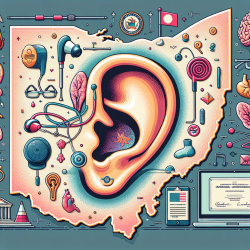Understanding and Enhancing LGBT Health Services for Better Child Outcomes
In recent years, there has been a significant focus on providing inclusive and comprehensive health services to the LGBT community. The research article titled "Lesbian, gay, bisexual, and transgender (LGBT) health services in the United States: Origins, evolution, and contemporary landscape" provides valuable insights into the development and current state of these services. As practitioners, especially those working with children, understanding these dynamics is crucial for creating positive outcomes.
The Evolution of LGBT Health Services
The origins of LGBT health services in the United States can be traced back to the 1970s, with community organizations stepping up to provide essential health services. These services have evolved significantly over the years, adapting to the growing understanding of LGBT health needs. Today, LGBT community health centers are concentrated in urban hubs and coastal states, offering a range of services from wellness programs to HIV/STI services and counseling.
Challenges and Opportunities
Despite the progress, significant gaps remain. The research highlights that LGBT community health centers are absent in 13 states, leaving many without access to culturally competent care. This presents both a challenge and an opportunity for practitioners. By understanding these gaps, practitioners can advocate for and contribute to the development of more inclusive services.
Implementing Research Outcomes
For practitioners working with children, integrating the findings from this research into practice can lead to better outcomes. Here are some steps to consider:
- Advocate for Inclusive Policies: Encourage schools and organizations to adopt policies that support LGBT health services, ensuring that children have access to inclusive care.
- Engage in Continuous Learning: Stay informed about the latest research and developments in LGBT health services to enhance your practice.
- Collaborate with Community Centers: Partner with local LGBT community health centers to provide comprehensive care and support for children.
- Promote Awareness: Educate parents, teachers, and community members about the importance of inclusive health services for LGBT children.
Encouraging Further Research
The research also underscores the need for further studies to understand the diverse needs of the LGBT community better. Practitioners can contribute by participating in research, sharing insights from their practice, and advocating for more inclusive studies that consider the unique experiences of LGBT children.
To read the original research paper, please follow this link: Lesbian, gay, bisexual, and transgender (LGBT) health services in the United States: Origins, evolution, and contemporary landscape.










